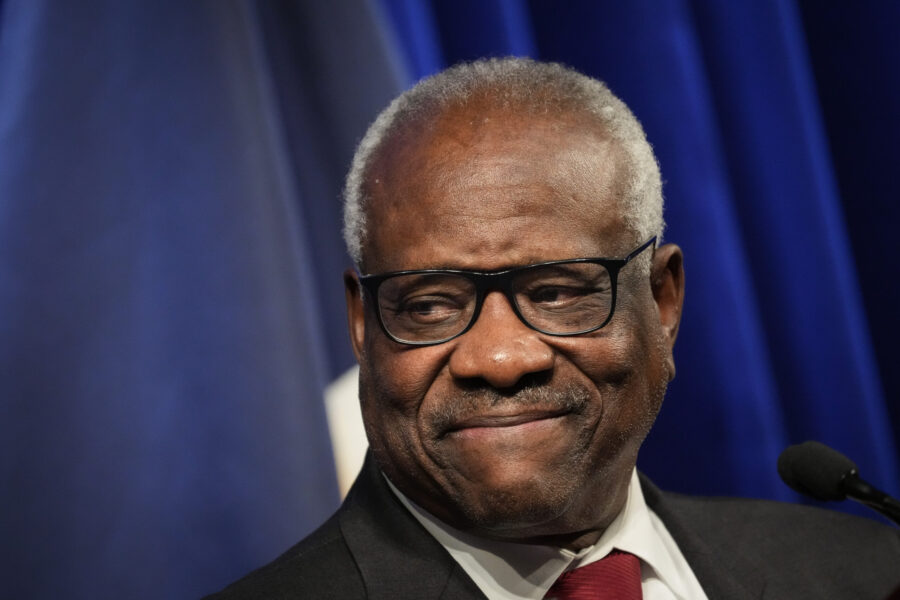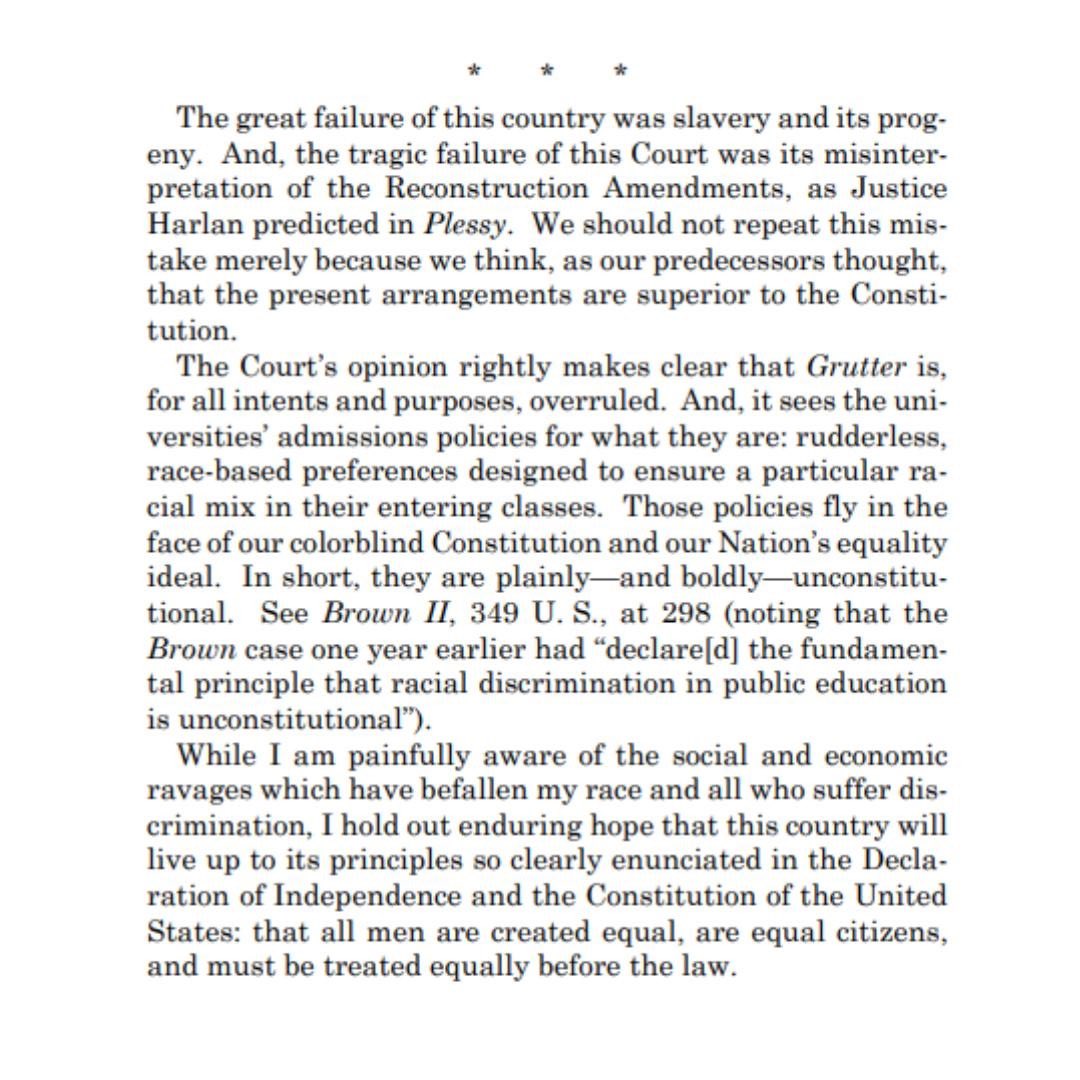Politics
EPIC: Clarence Thomas Obliterates Ketanji Brown Jackson’s ‘Race-Infused World View’ In Opinion On Affirmative Action

Supreme Court Justice Clarence Thomas delivered a harsh rebuke of his newest colleague, Justice Ketanji Brown Jackson, for her criticism of Thursday’s court decision effectively ending race-based affirmative action at U.S. colleges and universities.
In his concurring opinion, Justice Thomas writes that Justice Jackson, in her dissent, attempts to link “the legacy of slavery and the nature of inherited wealth” to the disproportionately negative socioeconomic outcomes for Black Americans.
“This, she claims, locks blacks into a seemingly perpetual inferior caste. Such a view is irrational; it is an insult to individual achievement and cancerous to young minds seeking to push through barriers, rather than consign themselves to permanent victimhood,” wrote Thomas.
Justice Thomas spun his defense of Black achievement as a counteroffensive to the widely accepted “race-based world view” he said is endemic by Justice Jackson and liberals in America.
“Individuals are the sum of their unique experiences, challenges, and accomplishments. What matters is not the barriers they face, but how they choose to confront them,” Thomas writes.
Justice Clarence Thomas blasts Justice Ketanji Brown Jackson's arguments in his concurrence:
KBJ "locks blacks into a seemingly perpetual inferior caste. Such a view is irrational; it is an insult to individual achievement and cancerous to young minds seeking to push through… pic.twitter.com/c3fUQPWETP
— Steve Guest (@SteveGuest) June 29, 2023
While recognizing the “social and economic ravages” that hindered black Americans in the past, Thomas shared his hope that the country will “live up to its principles” of real, colorblind equality in the wake of the ruling:

On Thursday the Supreme Court delivered its expected ruling banning considerations of race in college admissions, ending a practice that had been in place among many of America’s higher education institutions since the 1960s. At the time, civil rights movements and the Supreme Court’s Brown v. Board of Education decision provided a watershed moment for bringing a racial lens into college admissions as America grappled with the burdens of “separate but unequal” educational institutions.
The court’s six conservative justices ruled that admissions practices by Harvard and the University of North Carolina violated the equal protection clause of the 14th Amendment. Judge Jackson sided with the court’s three liberal justices in dissenting to the decision.
“Many universities have for too long wrongly concluded that the touchstone of an individual’s identity is not challenges bested, skills built, or lessons learned, but the color of their skin,” Chief Justice John Roberts wrote in the opinion.
“Eliminating racial discrimination means eliminating all of it,” he added.
Justice Thomas, who is Black, has been a vocal opponent of race-based college admissions during his more than three decades on the Supreme Court. Nominated by former President George H.W. Bush, Thomas is the second African-American to serve on the court and is now its longest-serving member since the death of Justice Antonin Scalia in 2016.

